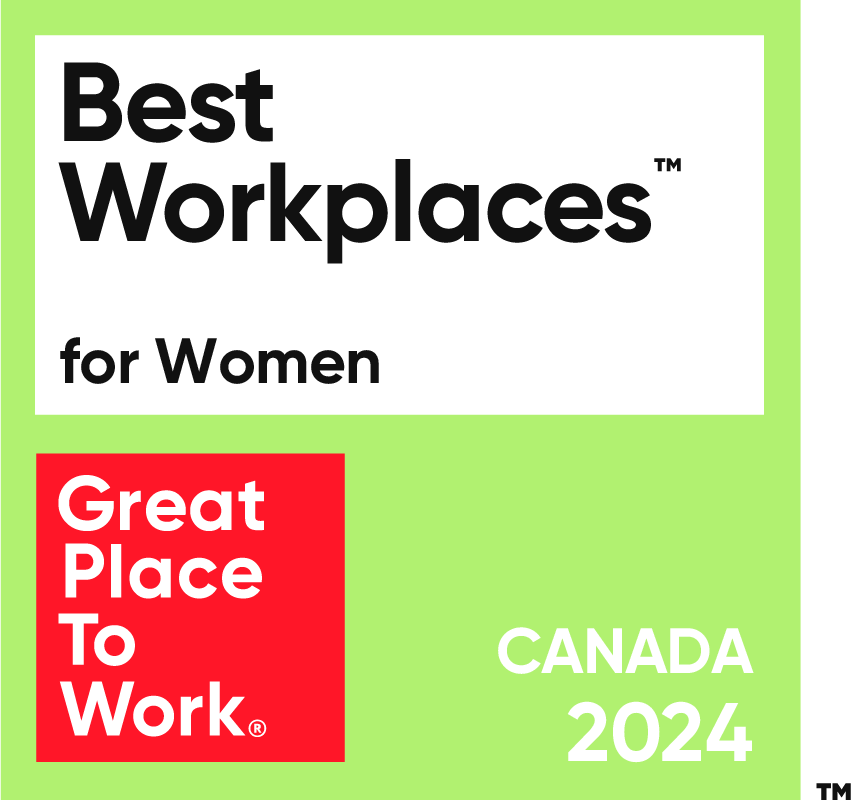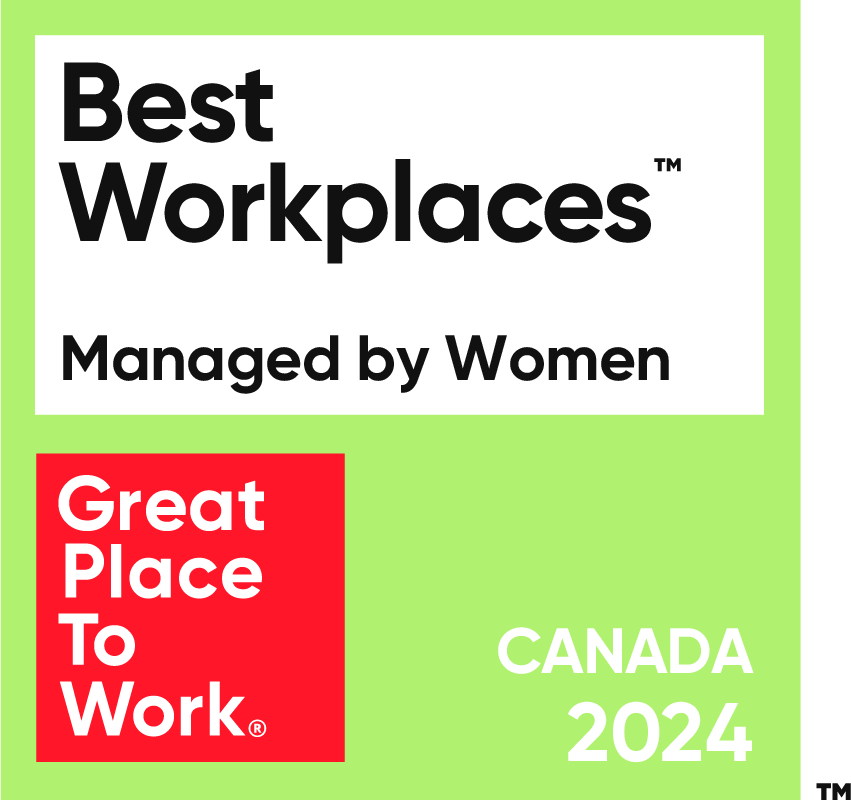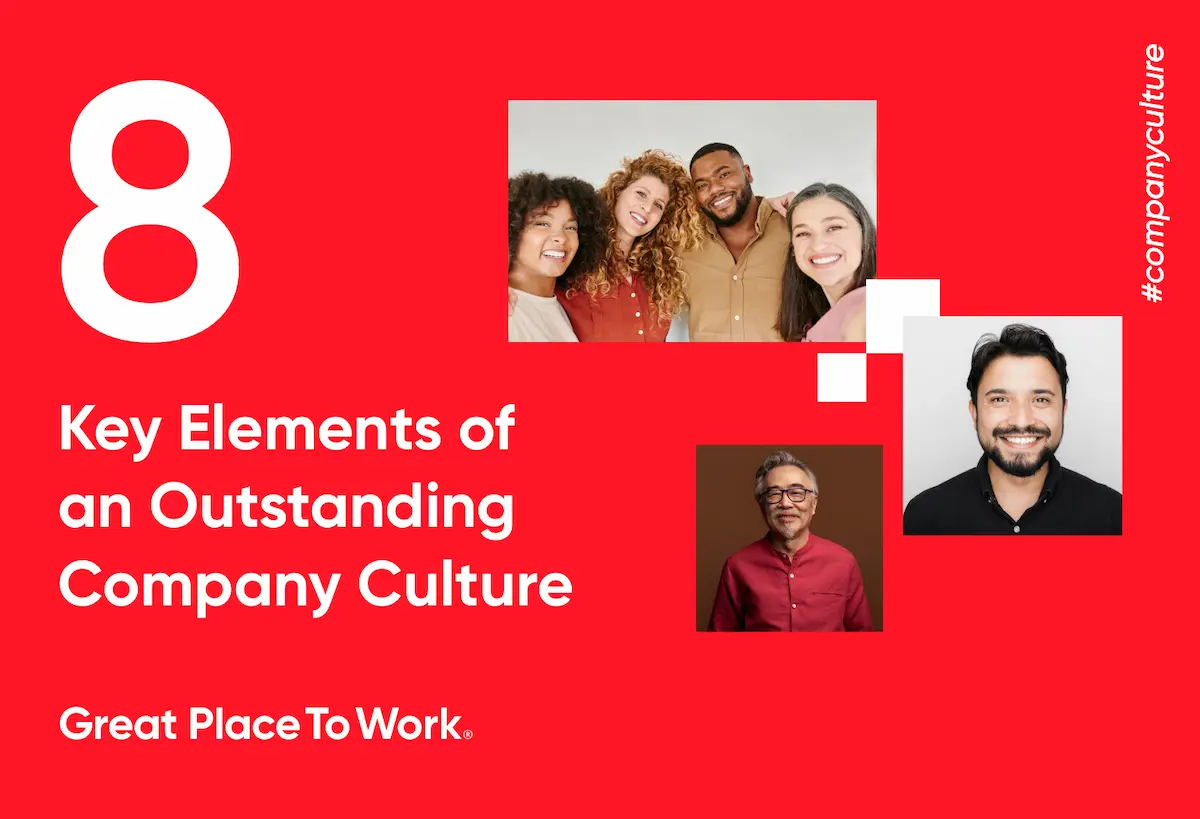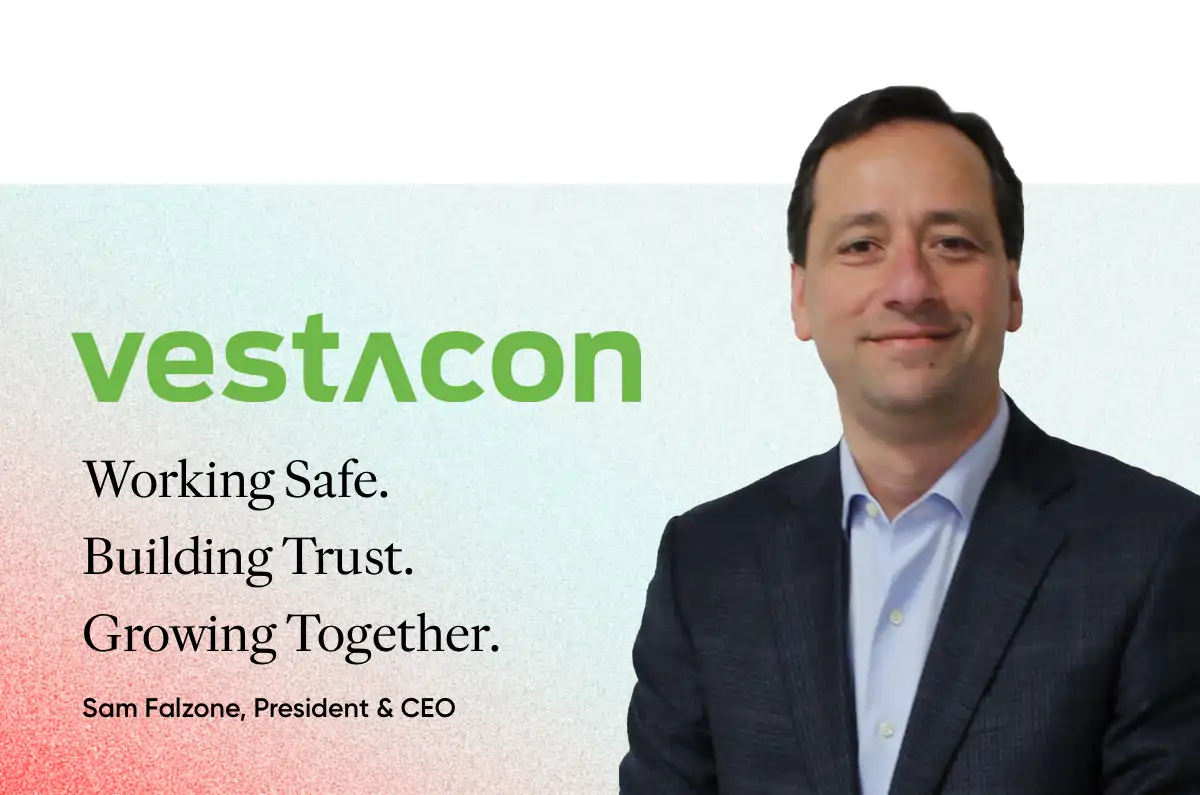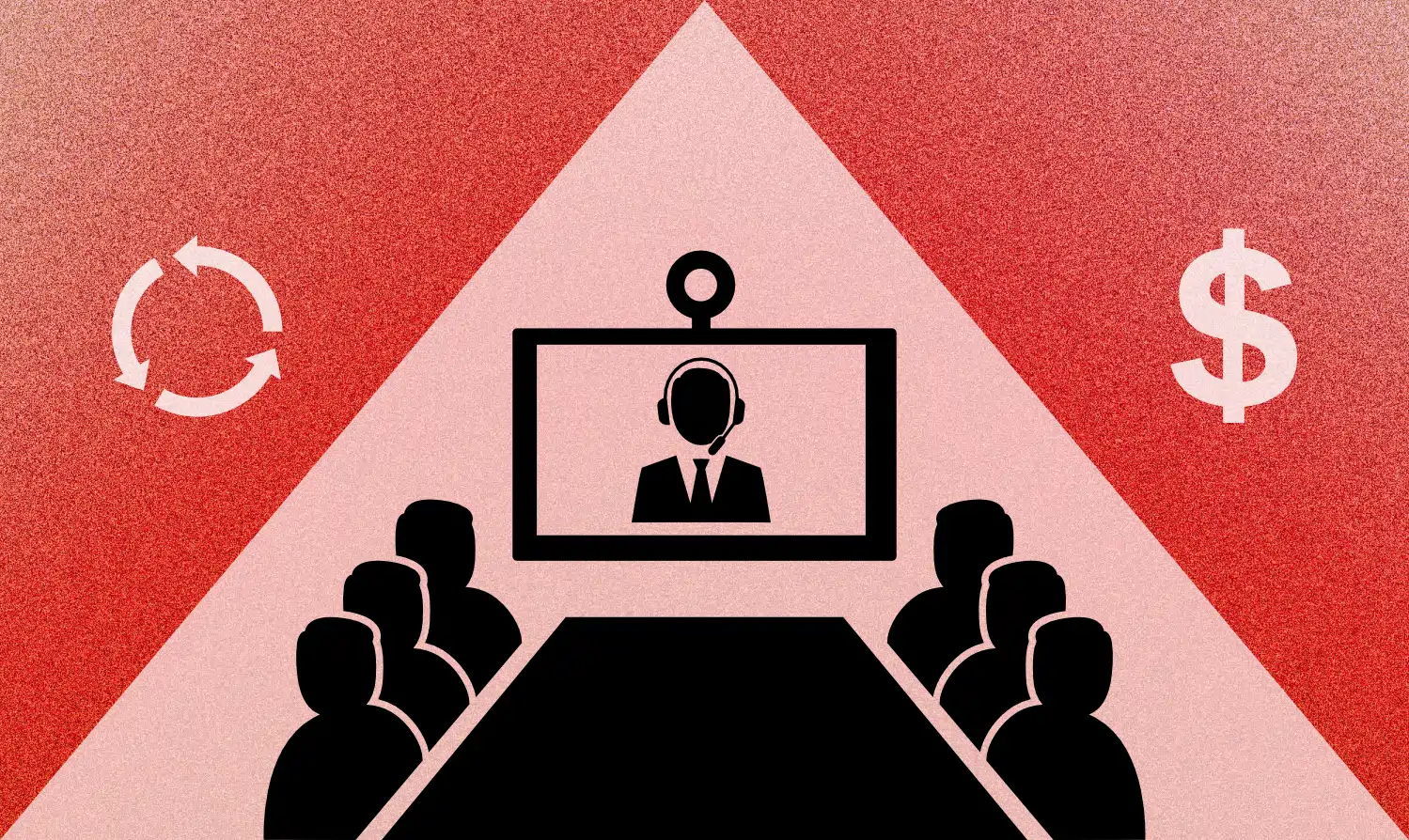
"Relationships with your people, not perks, are the pillars of a strong company culture".
When the elements of company culture come together to create an exceptional work experience, you know it immediately. It’s where people feel seen and heard, it’s where managers lead transparently and honestly, it’s where pride and collaboration flourish as teams are excited to work together.
The elements of company culture that really matter are those that encourage people to show up and work hard every day, not because they get free lunches or they get to bring their dog to work, but because they know they are valued for who they are and for their contributions to the team.
With the world being rife with uncertainty right now, people are looking for stability and trust more than ever and they want to know that their organization is there to support them and can be trusted to be honest and forthright in their decision making.
Organizations that actively put people first and work to create a positive company culture, benefit in many ways. Our research consistently shows that strong organizational culture is closely correlated with employee engagement, recruitment, retention, and innovation all which make for a stronger company overall. Here are eight areas you can focus on how to build a strong workplace culture.
Here are the 8 elements of an outstanding company culture:
1. Credibility

Employees at great workplaces find their people managers and leaders to be credible. At the Best Workplaces in Canada, employees strongly believe that management’s actions match their word. This leads to high levels of trust in general and employees then also know that when they ask questions, they will be given straight answers. This is the sort of work environment that allows people to concentrate on their actual work and not spend excess energy worrying about corporate decision-making or engaging in self-preservation politicking that often takes places within less trustworthy work environments.
- Be honest and forthright.
- Share as much information as you can.
- If you don’t have an answer, be honest and promise to find out.
- Do what you say, say what you mean.
2. Respect

Respect can take many forms, but the best workplaces regularly show respect by recognizing employees’ efforts, seeking employees’ input, and caring for employees as people with lives outside of work. Many of the Best Workplaces in Canada offer flexible work hours and flexible work locations. They recognize that people can be trusted to do great work without being watched over. This level of autonomy and trust allows people the flexibility they need to manage their lives while still achieving their work objectives. It’s strong employee relationships built on a foundation of respect that prevents people from abusing flex-related policies and practices.
- Stop micromanaging.
- Provide the resources and support needed for people to excel.
- Focus on objectives and specific deliverables.
- Communicate often and use technology effectively to share information.
3. Fairness

Humans place a high value on fairness. They recognize fairness for themselves and they also want to see others being treated fairly. That’s why this element of company culture is particularly important – fair treatment is continuously being monitored and evaluated from all angles, and it covers all of the protected attributes like gender and religion as well as less obvious impacts on fairness like treating all departments and positions with the same respect and making sure everyone feels included and valued for what makes them unique individuals. This element of company culture is an area where great workplaces particularly excel. They adopt company culture best practices that dissuade favouritism and politicking and ensure fairness across a wide range of activities from recruitment to compensation and recognition to development.
- Examine your practices for unintentional bias.
- Promote leaders with a wide range of backgrounds and talents.
- Educate people on the value of diversity of thought and experience.
- Understand the importance of fair pay on your overall culture.
4. Pride

Employees who have pride in their workplace believe in the company and what it stands for, from what it produces, to how it operates, to how it engages with the local community. When employees feel proud of their workplace, they are more engaged, and our research shows they are more likely to stay with their organization and recommend their workplace to others. To build and reinforce pride you need to be consistent in your actions across all circumstances so that employees know you can be counted on. This trust in consistency leads to people feeling a real connection with their colleagues and the vision of the company – the result is everyone pulling together through thick and thin.
- Share successes and showcase how what is done makes a difference.
- Celebrate wins, big and small.
- Talk about failures and misses openly and candidly.
- Create clear connections between individual, team and organizational goals.
5. Belonging

Belonging in the workplace is an employee’s sense that they are accepted and valued by the organization. This goes beyond feeling appreciated for what they do, and into feeling appreciated for who they are. And to embed belonging as a core element of company culture means going beyond saying you value employees and showing them each and every day. From how you welcome your new employees to the types of benefits you offer, to the development opportunities available, each of these decisions are opportunities to ensure a wide range of people with different needs are able to achieve their goals and be their best as part of your organization.
- Make sure people feel welcomed from day one (and even before that!).
- Embrace the diversity and individualism of your people.
- Lean on employee resource groups to help guide business decisions.
- Build flexibility into your practices and policies in order to be more inclusive.
6. Effective leadership

Leadership can make or break a team. A great leader will inspire, motivate, and drive innovation. A bad one will demoralize, kill productivity, and push employees to walk out the door. Great leaders foster a team mentality that ensures everyone is working together and to their best of abilities. They avoid favouritism, they align their words and actions, they are honest and approachable, and they are genuinely interested in their employees as people. To build a great corporate culture means investing in leadership development by identifying employees with leadership potential, helping them learn the skills and qualities needed to succeed, and creating a pipeline of great future leaders.
- Role model great leadership from the top.
- Seek out ideas from team members and involve them in decision-making.
- Recognize and celebrate employees and support their professional development.
- Recognize and reward competence and honesty to build these fundamental leadership traits into your culture.
7. Values

Your company’s core values are your guiding star: these are the beliefs and principles that shape who you are, what you do, and why you do it. The best organizations understand that their values are key to building an outstanding corporate culture and they integrate their values into everything they do. This allows them to lead with shared values rather than rules and policies, which in turn builds trust and autonomy into the fabric of the culture. Employees can be trusted to make great decisions when values are used as the basis for everything. Shared values engage and empower, which boosts innovation, creativity, and productivity.
- Clearly define and articulate your values.
- Involve employees in the value definition process for maximum engagement.
- Regularly, and formally, recognize values-based actions and decisions.
- Be prepared to make tough decisions that align with your values.
8. Innovation

Workplaces that have innovative cultures inspire employee loyalty, confidence, and a willingness to give extra. This is because innovation flourishes when people feel safe and supported. They can express their ideas, try new methods, make suggestions and provide honest feedback when they know they won’t be judged or criticized. When your culture ensures people’s right to be themselves, they will actively look for new ways to make your organization great, and great ideas can (and often do!) come from the least expected sources.
- Create systems where employees from all over the organization can make suggestions.
- Employ a variety of practices to generate new ideas from simple brainstorming in team meetings to company-wide hackathons.
- Recognize all new ideas, reward those that are truly innovative and close the feedback loop so people know their ideas were heard.
- View failures and misses as opportunities to learn and improve.
By thoughtfully investing time and effort into these eight elements of company culture, you can show your people that your workplace culture prioritizes them. And that’s what a truly outstanding culture does.
Measure the 8 elements of company culture in your workplace
Show off your superb workplace by earning Great Place To Work Certification™. With it, you can tap into valuable insights and see how these eight crucial elements of company culture are shaping up within your organization.
Get Certified 
Ask us how we can work together to help you create a happier, healthier workplace for everyone.

